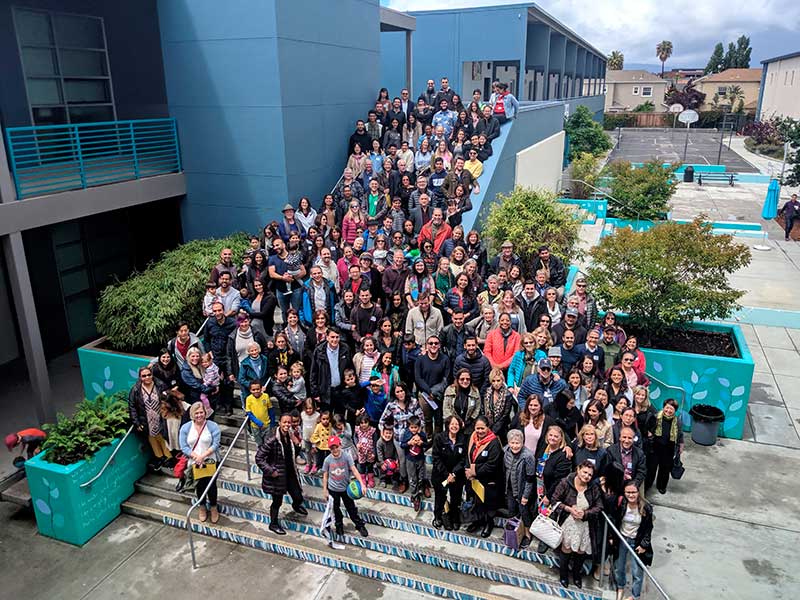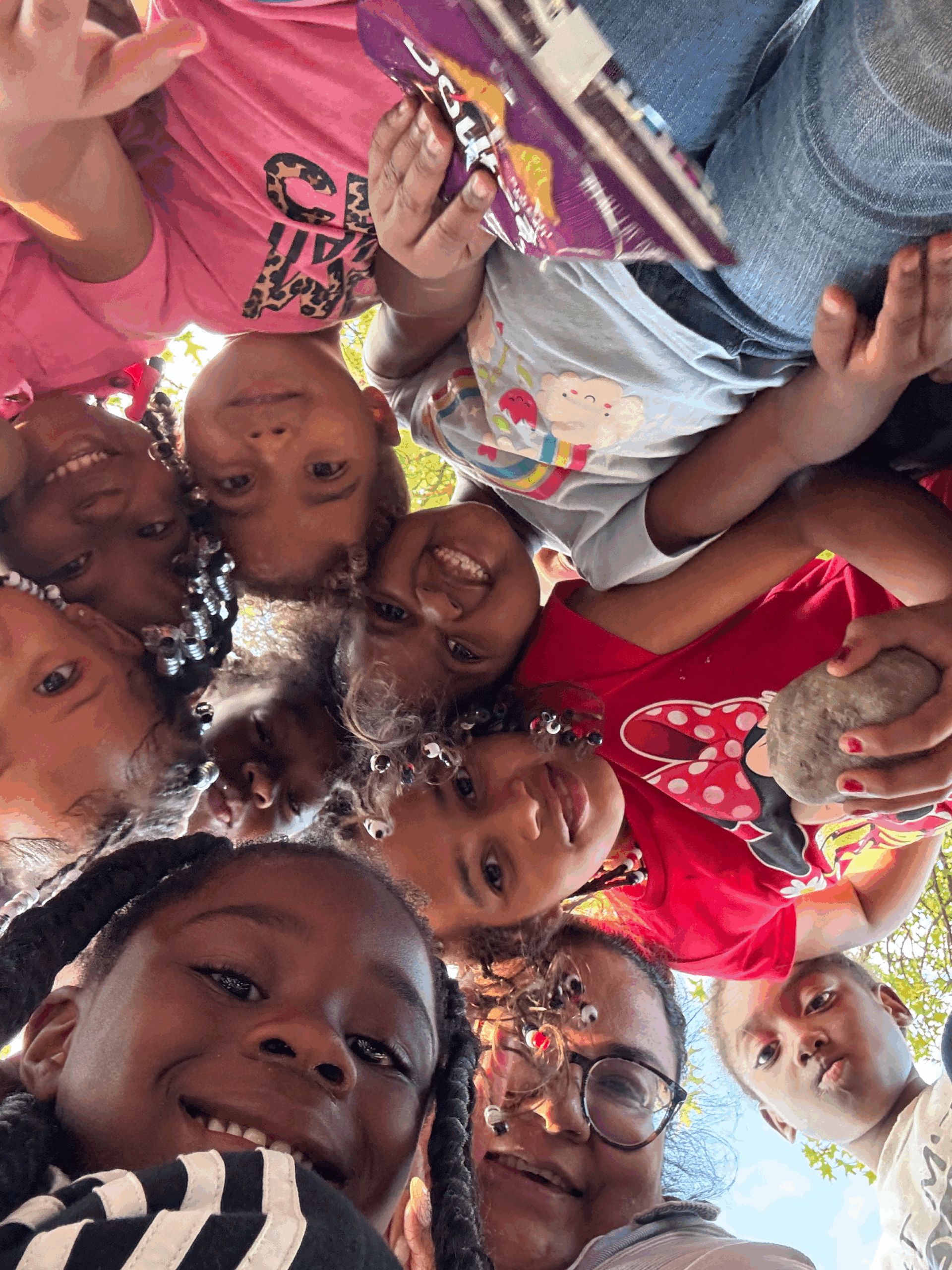
Bilingual family camps examine prejudice, build hope
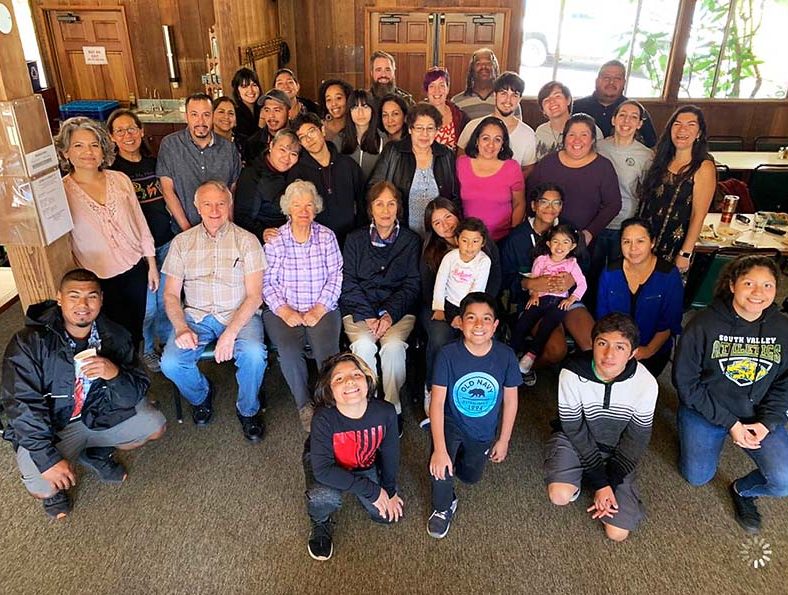
Bilingual family camps in California and Arizona are giving people a space to share their struggles with prejudice, prospects for justice and unity in the light of Baha’i teachings, and ways to contribute to building a better world.
Most camp participants are bilingual or Spanish-speaking. They are familiar with conversations informed by Baha’i writings, as they have taken part for up to four years in the “Hope and the Family” program overseen by the national Baha’i Office of Education and Schools (OES).
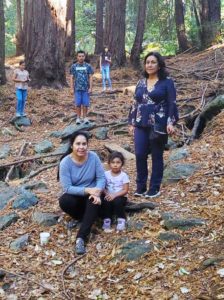
With study and inspiration from periodic weekend gatherings at Baha’i centers of learning or other fitting locations, this program has encouraged dozens to work in their neighborhoods to facilitate junior youth groups, children’s classes, study circles and devotional gatherings. It has helped people of a variety of ages strengthen bonds of friendship, spiritual character and a pattern of service in the community.
Recent camps have also woven in perspectives from another OES program: “Walking Together on a Path Toward Race Amity,” a curriculum under development at Baha’i seasonal schools across the country. Those study materials are designed to stimulate conversations and action plans for working to dissolve racial barriers.
In the time between camp sessions, participants strengthen their relationships by visiting each other’s homes. Conversations often focus on “long hours of sharing our journey to this point in life,” especially how faith has kept people going during difficult times, according to a report describing this effort. Visits often have ended “with an impromptu devotional that naturally emerged as part of the bonding of hearts and collective stories of struggle and faith in life.”
Fresh motivation for action
In the wake of camps held in late 2019, some families have come out freshly motivated to organize devotional gatherings and other spaces to invite people into the conversation.
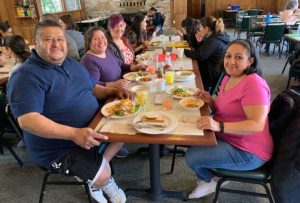
“It reinforced our faith, our desire to improve our home and community life, always applying our faith,” commented Juan and Adriana Cabrera of Santa Clara County, California. “We also realized the great magnitude the Baha’i Faith has around the world, and it is good to know that with faith and persistence everything is possible.”
One young woman, who facilitates a junior youth group in her neighborhood, said the camp she participated in provided an opportunity to learn alongside her mother and bring coherence to her service and family life.
Where do the conversations happen?
The race amity materials were brought in after camp organizers asked themselves: Where are families naturally already discussing and dealing with issues of racial prejudice?
Those who set out to explore the question included staff members Yma Marañon-Davis and Mahara Bocanegra at Bosch Baha’i School near Santa Cruz, California, as well as Sarah Enslow, who has settled in Santa Clara as a homefront pioneer — a Baha’i who relocates to help the community-building process along.
The answer became clear during a series of home visits, as families opened up and shared their feelings on the challenges their communities face daily.
“It gave me an opportunity to reflect on how to thoughtfully engage in this conversation of racial prejudice, while keeping my eye on the oneness of humanity,” Marañon-Davis says. The experience refreshed her perspective as she continued to dive into Baha’i guidance on building unity among the races, and her awareness of “how my posture reflects the conditions necessary for true consultation.”
Families taking part in regular family camps in Arizona and California were enthusiastic when they heard the camps in fall 2019 would incorporate the theme of race unity with materials from the “Walking Together” program. It would allow for conversations in larger numbers on a topic they had been discussing in home visits.
“When several families are at a camp studying and considering the advancement of their community all together, the significance of what they are engaging in becomes that much more immediate and impactful,” Bocanegra observes. “They become re-energized. They take this to their communities and bolster their efforts.”
The flow of the camps
Each camp began with dinner, social icebreakers and prayers focused on building friendships. Service and cleanup tasks were shared eagerly. Showing of the film Dawn of the Light and clips from Frontiers of Learning shed light on the global nature of the process the families are involved in and its potential to transform individuals and communities.
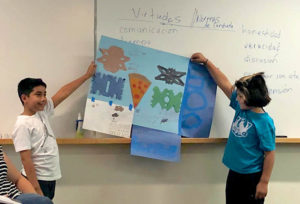
Sincere prayer and remembrance were part of every phase of the weekend, especially potent during scheduled devotions. The camp at Bosch was held in late October during the 200th anniversary of the birth of the Bab, herald of the Baha’i Faith — adding a dimension to the collective sense of dedication.
As she helped facilitate the Phoenix-area camp, Enslow says, she learned a lot about avoiding patterns or attitudes of paternalism. “Because we all saw each other as friends truly working to bring change to our community together, listening to each other’s experiences and challenges, and mutually answering the question of ‘what steps would you like to take next,’ ownership of the process belonged to all,” she observes.
On each camp’s last day, with the aid of the “Walking Together” materials, each family talked about what they can do going forward. Their plans for continuing to build capacity and relationships in their communities, for the most part, were focused first on widening the scope of devotional gatherings.
This planning came especially naturally to groups who have already been working together as a nucleus of activity in their neighborhoods, and who made new friends from other cities at the camp.
Back in the neighborhoods
Now the families are back in their neighborhoods around the Phoenix area and various Northern California locales. Life’s tests — as traumatic as the passing of loved ones or as mundane as meeting many obligations in a limited time — often serve as opportunities to show friendship and encouragement, the OES has heard from many families.
A stream of home visits is a big part of the continuing flow of community building. People pray for each other’s steadfastness, share difficulties in moving through challenges, and celebrate joys as well.
Many are learning more deeply how to respond to Baha’i guidance that encourages learning “to draw on each other’s strength and consolation in time of need” and to “draw fully on these mighty forces of love and strength and harmony generated by the Faith.”


